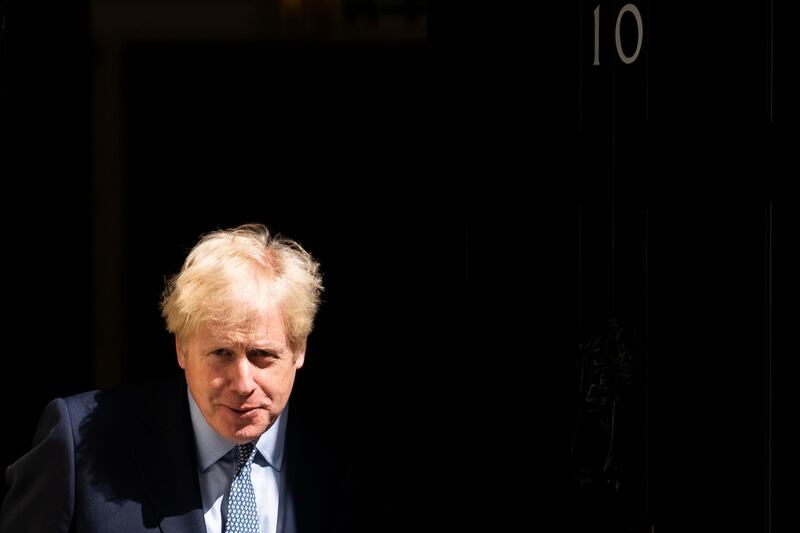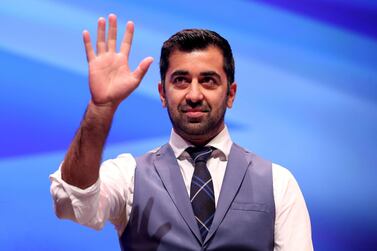Two of Britain’s most senior police officers have called for clear safeguards around the adoption of a cross-party definition of Islamophobia in a letter that said Prime Minister Boris Johnson could embrace the term.
The intervention hinted the police leaders would be ready to relinquish previous misgivings that centred on a possible impact on the official Prevent counter-extremism programme.
Martin Hewitt, the chairman of the National Police Chiefs Council, and Assistant Commissioner Neil Basu, Britain’s top antiterrorism officer, have said their previous concerns could be addressed though administrative protocols.
The definition by the all-party parliamentary group on British Muslims defines Islamophobia as “rooted in racism and is a type of racism that targets expressions of Muslimness or perceived Muslimness”.
The police officers had said in the past they were concerned about the single line definition. Now they appear ready to accept the definition if it includes examples and case studies of the kind that had protected other minority groups, as in the definition of anti-Semitism. Their new stance puts pressure on the government to follow suit.
While the definition has been adopted by Britain’s other main political parties, trade unions and the Mayor of London, it remains a sticking point for the ruling Conservative Party.
“As you are aware, we were concerned about the potential for the definition to be used to challenge legitimate free speech, and to be used as a vehicle to criticise and undermine counter-terrorism policing,” the letter from police chiefs dated June 27, read.
“We very much welcome your assurance that there is no intent for the definition to have such an impact, or for it to attain a legally binding status. Our concerns centred on what we believed to be a single line definition,” they went on.
“A definition that includes this further context should address our concerns about the potential impact on our work in countering terrorism and violent extremism,” the letter concluded.
The repositioning of the policing body further exposes fault-lines in the Conservative Party as it struggles to deal with its own Islamophobia problem.
In a letter previously leaked to The Times in May, Mr Hewitt told Mr Johnson's predecessor Theresa May that the law would potentially undermine terror laws.
Specifically, the police chief said the law could threaten stop-and-search powers, the prescribing of terror groups or banning extremist materials. The definition, it was felt, could also undermine the Prevent initiatives which requires bodies like schools and universities to intervene to protect those vulnerable to extremist ideologies.
In response, Baroness Sayeeda Warsi, the Conservative peer who chaired the group that created the definition and a vocal critic of Islamophobia in her own party, accused Mr Hewitt of “irresponsible scaremongering”.
Beyond policing, concerns have been voiced that the Islamophobia definition could undermine the nation’s existing equality laws, which define racist abuse along ethnic lines. Other groups have claimed the definition could also threaten free speech in the UK.
Britain's police chiefs have also made it clear how unhappy they are that the previous letter was leaked to The Times. Their new letter underlines how the leak likely undermined the confidence of British Muslims in national police forces.
“We recognise the negative impact that the leaking of the letter to the Prime Minister has had on the confidence of Muslim communities and their relationship with policing and the Counter-Terrorism Advisory Network,” they wrote in the letter.
“You have our assurance that this letter was not leaked by anyone in policing … We will continue to prioritise work to tackle hate crime in all its forms and to repair the damage to community relations caused by this leak,” they added.







